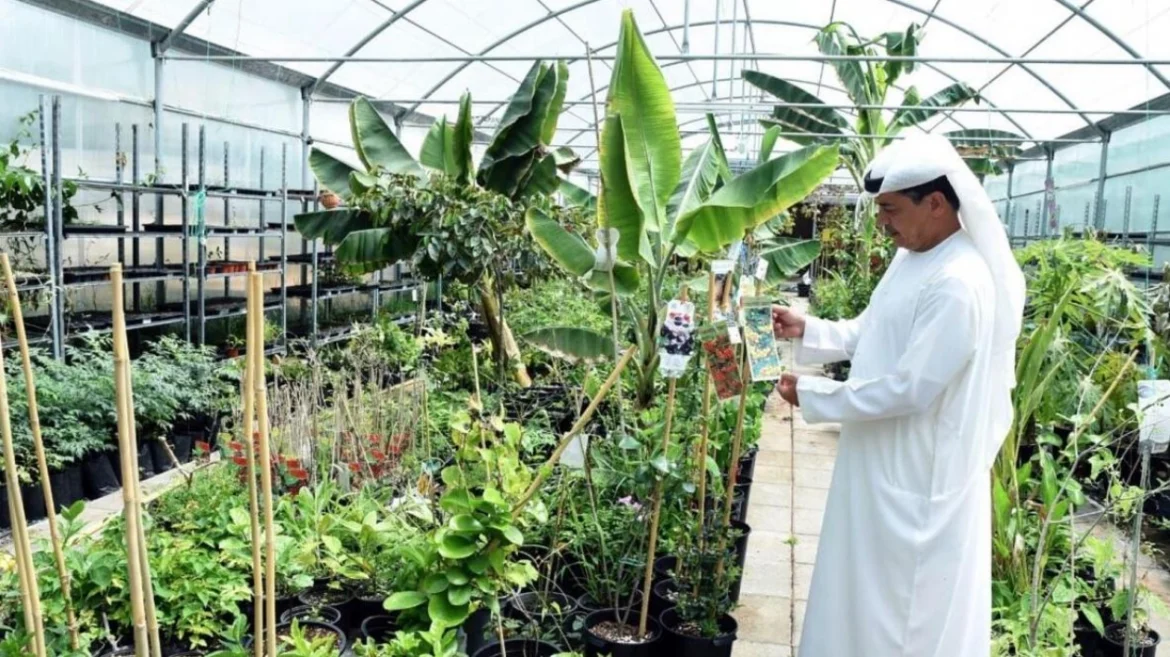By Staff Reporter
Several farms across the UAE welcome visitors, with some offering free entry and others charging a ‘nominal’ fee
UAE hikes fuel prices: Here’s how much a full tank costs from today
‘I was threatened with being killed’: UAE billionaire Habtoor explains why he cancelled Lebanon investments
New Sharjah route ends ‘years of frustrating traffic’ for many residents
Farms cultivating everything from the exotic to the impossible-to-grow-in-the-desert are mushrooming across the UAE thanks to innovative agricultural practices, a top official has said. Many of these farms have opened their doors to the public as the country promotes its agrotourism experiences.
“Several farms across the UAE welcome visitors,” Fatima Abdulrahman, director of Government Communications, Ministry of Economy, told Khaleej Times. “These farms cultivate a variety of things, including strawberries, blueberries, honey, flowers, fish, wheat, cocoa, and even mushrooms.”
Some of these farms offer free entry, while others have a “nominal” fee. She listed some of the most popular farms:
According to Fatima, the UAE offers multiple green tourism experiences — “from exploring oases, public parks, and natural reserves to venturing into the mountains, mangroves, and engaging in adventure tourism”.
“Farm visits add a unique dimension to this offering, aligning with the global trend towards sustainable and experiential travel. The sector is expected to evolve with a greater focus on specialised farm stays, educational programmes related to sustainable agriculture, and culinary tourism experiences centred around locally grown produce.”
Farming in the desert
Farmers in the UAE are cultivating fruits, vegetables and flowers by defying the country’s harsh natural conditions.
For instance, Sharjah’s Mleiha Wheat Farm is a massive carpet of green in the middle of a rugged rocky area. The farm aims to produce 15,200 tonnes of organic wheat annually, meeting 100 per cent of Sharjah’s retail wheat demand. Automated irrigation systems that leverage satellite data; soil sensors linked to weather stations; and control rooms to optimise irrigation are among the technologies used to reduce water consumption.
Hundreds of kilometres away, the picturesque Hatta mountains is home to a strawberry farm that features two distinct fields: An open one with 6,000 strawberry plants and a greenhouse with 1,870. It uses smart farming solutions, and methods like hydroponics and greenhouse farming to ensure year-round production of the fruit.
Elsewhere, Abu Dhabi-based Below Farm Company has set up four large, climate-controlled chambers in the middle of the desert to farm mushrooms. The project produces up to one tonne mushrooms per month by using technologies that control light, temperature and humidity levels.
Green tourism
The UAE is currently promoting its green tourism experiences as part of its annual tourism campaign called World’s Coolest Winter. It highlights various outdoor activities and natural attractions that residents and tourists can explore, including exploring nature reserves and protected areas; mountain hikes and desert adventures; and island excursions.
According to Fatima, agrotourism can further diversify the UAE’s tourism offerings, attracting new segments of visitors interested in sustainable and culturally enriching experiences.
The country has “significant potential” to capitalise on existing infrastructure, and attract a growing segment of eco-conscious travellers. The projected increase in tourism-related jobs, expected to reach 833,000, highlights the sector’s capacity to absorb and support new initiatives like agritourism.
“With the national tourism strategy aiming to raise the tourism sector’s GDP contribution to Dh450 billion and 40 million hotel guests by 2031, agritourism can play a role in achieving these ambitious goals,” said Fatima.


